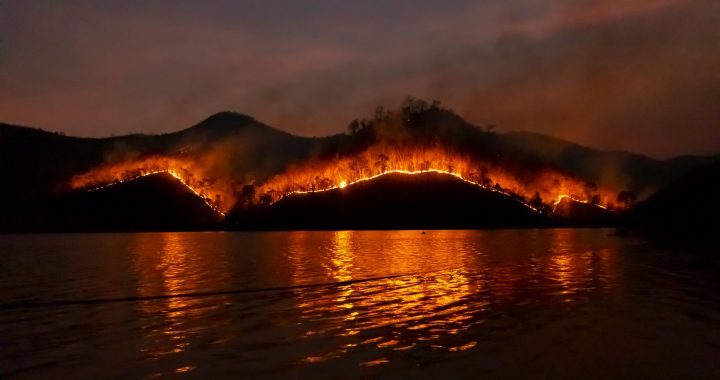Having moved from Chicago to Ojai, California some four years ago, this was my first experience with the powerful Santa Ana winds, and with the sort of devastating fires that are now consuming major parts of Los Angeles. The winds, it seems have a pernicious, almost mystical quality to them; something about which the late, great Joan Didion wrote for years, noting how the winds have the power to somehow adversely affect people’s mental and emotional stability by causing some to fret, sulk, be unwilling to come out of their house for days, or in one well known case in San Bernardino, apparently hatch a plan to kill their spouse.
Having lived in the Chicago area most of my life, I endured any number of periods of intense, bold-chilling cold or else several feet of snow. Having relatives living in Florida, I listened to their stories of dealing with powerful hurricanes by barricading themselves in certain rooms of their home. Yet as difficult as those events are to endure, it seems that there is a certain predictability to them which tends to make them somehow bearable. That is, by knowing just how cold the temperature will become, as is often the case, one can prepare in advance how to hunker down inside one’s home or apartment. And in the case of hurricanes, the weather service can often correctly predict the approximate path of the storm, in doing so, often giving people time for how to deal with it.
Yet with events like the Santa Ana winds, wildfires, or the 5.2 earthquake which hit Ojai last year, that sort of predictability, it seems, is no longer really afforded one. Earthquakes are entirely unpredictable. They can strike at any time despite the best efforts of geologists to tie their possible appearance to the state of a certain fault line. Nor can the exact speed and power of the Santa Ana winds which might be blow down from out of the mountains be known in advance. And of course the start of wildfires, like the one currently decimating Los Angeles, can’t possibly be known in advance.
California has always had an element of uncertainty to it. As one drives along Highway 101, one is able to behold the powerful beauty of the Pacific Ocean. Yet at the same time, it might occur to one that this is the end of the continent, and that if he or she wants to indulge their pioneer spirit and move onward, there is only the possibility of going back, of returning to where one has already been. This may not necessarily be a constant conscious thought, but nevertheless it is a reality which tends to remain with one, at least at an unconscious level. Of course, during a tragedy such as the recent wildfires that have occurred in L.A., people may be thinking about packing up and leaving. Yet one imagines a certain pioneer spirit, even one that is only unconscious, may stop a number of them in their tracks.
To live at the end of a continent, where forward movement is not an option, and which provides one with a measure of inevitable uncertainty concerning potentially catastrophic events, can feel at times like living on the edge, so to speak. Yet at the same time, this is also part of the fascination which many people have with California; that there is a certain sense, albeit one that is unconscious, that one has chosen to live at the edge, so to speak; an inheritance of a certain pioneer spirit that lives within us, whether we recognize its presence or not.
